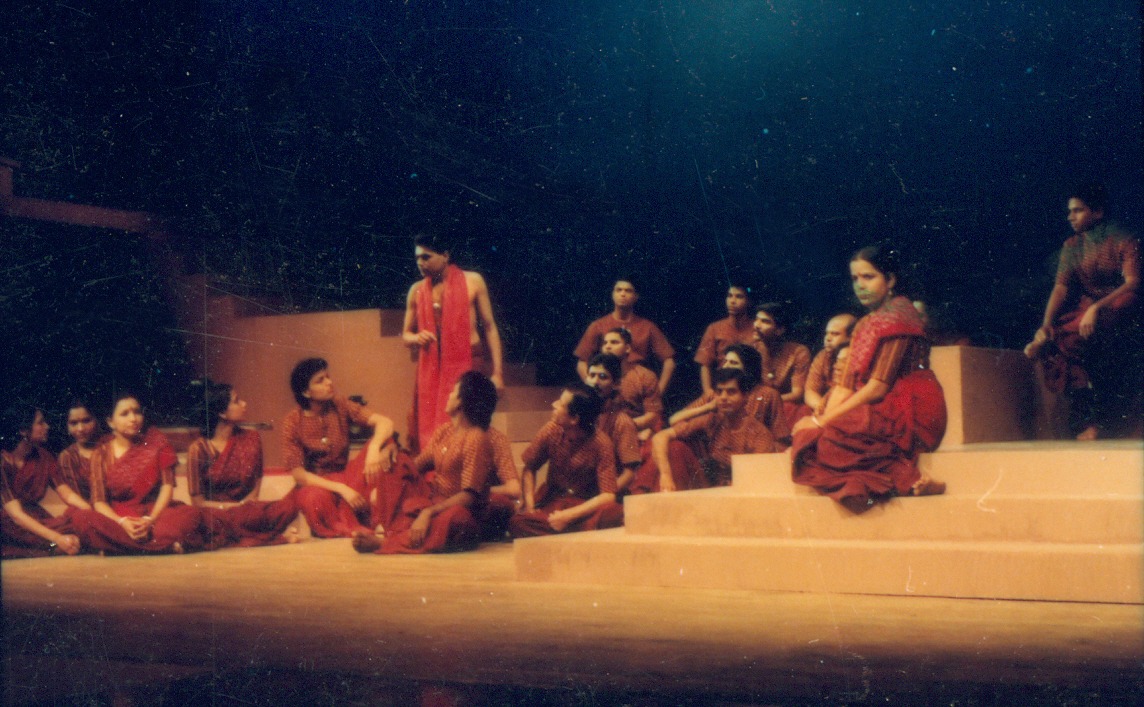Girish Karnad’s Taledanda

With the play, Taledanda (Death by Beheading), the June takeover of Girish Karnad’s plays and their proscenium rendition, concludes today. Taledanda (Hindi: Rakt Kalyan) was written by the playwright in 1989, against the backdrop of the Mandir-Mandal conflict in India, when the government under V. P. Singh’s tenure(1989-90) accepted the clauses of the Mandal Commission, thus leading to widespread protests in several parts of India, especially in the urban spaces where upper caste (youth) protesters inhibited with the reservations for the other backward classes, especially in education and job sectors, self-immolated as a form of protest.Karnad delved into a commentary on the caste system and religious fanaticism persisting in the country by drawing parallel between the existing socio-religious segregation with the historical reformist movement of Karnataka in 12th century AD, which was spearheaded by Basavanna. Karnad has used the strong and free verses by Basavanna in his play, which were translated and compiled by his mentor A.K. Ramanujan for ‘Speaking of Siva’. The play investigates an actual historical experiment on social deconstruction and reformation and its tragic failure, both on collective, as well as individual level. The play is set in the city of Kalyan, where Basavanna gathered an unmatched congregation of poets, social revolutionaries, philosophers, and mystics, setting aside their caste, gender and religious identities. Basavanna, who himself was a Lingayat saint of the Shaiva sect of the Bhakti movement, envisioned a society, which would get rid of socio-religious prejudices. In order to dramatically display their belief system they embarked upon a marriage of a cobbler’s son and a Brahmin’s daughter. This led to an unmatched spree of violence over Kalyan and resulted in widespread bloodshed and tragically ending the movement.
Excerpt:
Basavanna: “No one has a right to sacrifice anyone—not even himself.”
Haralayya: “The word ‘sacrifice’ strikes terror in me. Too long have my people sacrificed our women to the greed of the upper castes, our sons to their cosmic theories of rebirth. No more sacrifices.”
